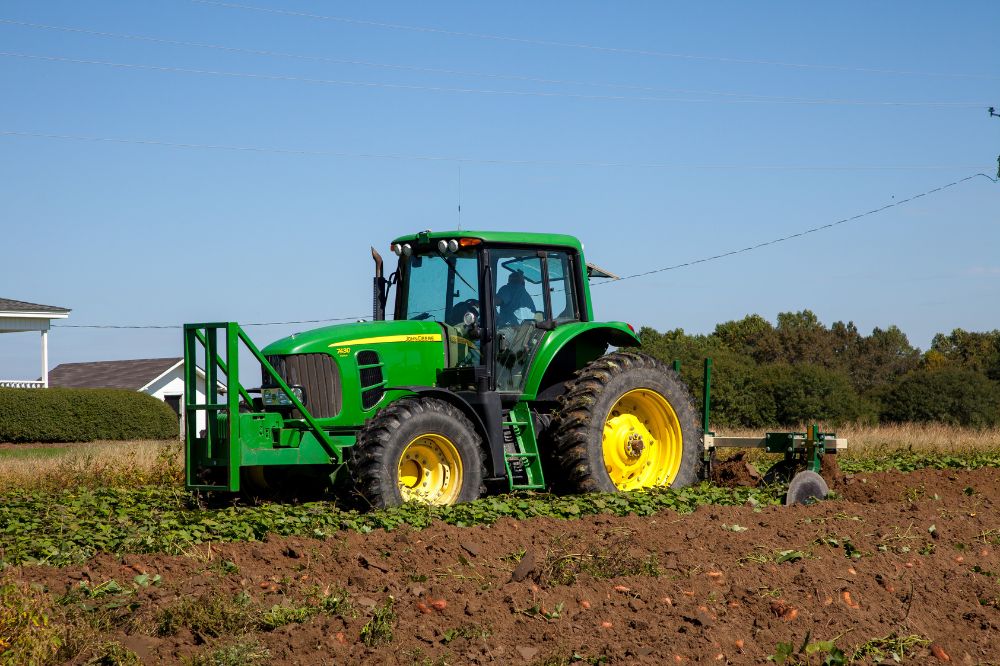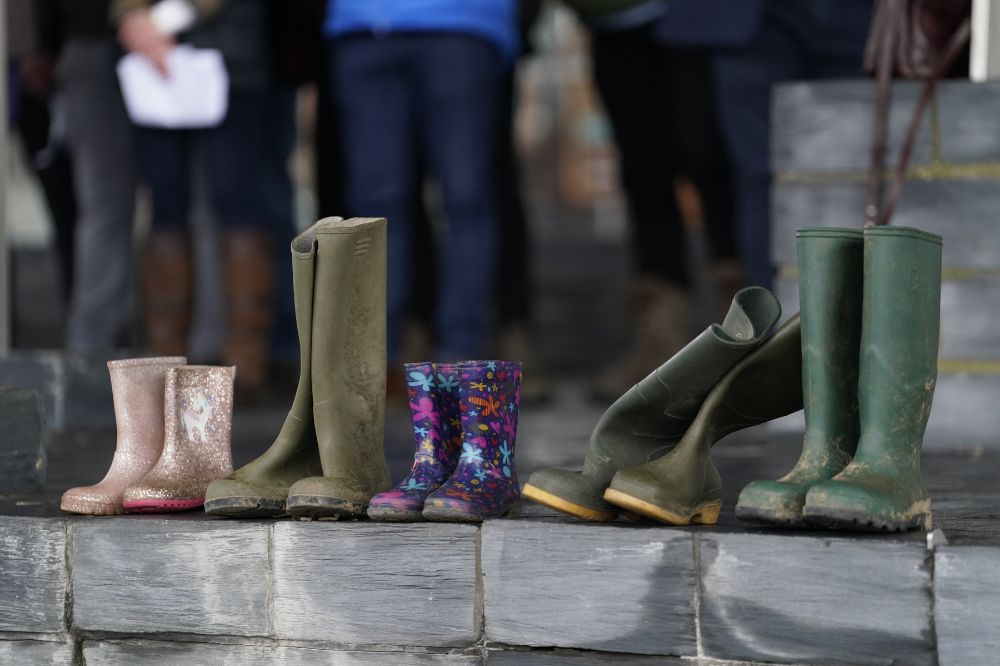Imagining a farm-friendly future

Julie Brominicks
Farmers I love you. I love your dressers sagging with schoolbooks and toys. I love your dogs. Dwi’n caru eich iaith. I love the poets among you. I love the way your whoops and curses follow me over the hills like the gazes of the livestock you’re tending. I love your grit and hard graft.
Your gruff gentleness. Your concern for curlews. How even when it seems like you’re not appreciated, you just keep going. Dal ati.
Environmentalists I love you. The passion and commitment with which you communicate the science. How you understand the chaos coming our way so you too, risk ridicule and hostility when all you’re trying to do is help us all avoid extremely dangerous climate breakdown.
Progress is too slow, it seems like no-one understands. Yet you keep going.
Crisis
I love you, wildlife specialists. Your positivity! How you understand the environmental crisis – yet take such delight in the flight of an owl, the glance of a pine marten, the wild beauty and grace of a single suffering species – that you somehow possess a magical ability to slough off the worry and keep going.
Parents! People! Everyone! I love that you care and are aware of these things even while ravaging the aisles for cheap food because you’re just trying to keep afloat and feed your families, I love you for this.
I have eco-friends who bought cars and whose homes filled with plastic when they had kids. I know farmers who buy supermarket shrink-wrapped imported meat and veg, and wildlife people who fly to Costa Rica for a biodiversity hit – as if those emissions don’t count.
We’re all flawed, trying to cope with the failing systems we’ve somehow inherited. And when we don’t think people understand our struggles or the urgency of the situations we face, we start shouting.
Chaotic times
These are chaotic times. This week, with the consultation for the Sustainable Farming Scheme underway (as explained by Emily Price here), farmers are in the news.
As angry voices unravel on Radio Cymru I try and keep up and take heart. I appreciate the measured urgency with which Simon Wright and Carwyn Graves wrote and Catrin Wager’s article, and more.

Farmers have had it tough for years.
Now they are worried that the 20% of land they are being asked to devote to woodland and other habitats (like peatland) means they won’t survive – given other pressures and control wrested from them over decades.
The old subsidies and systems are bust. Hearts and nerves are cracking. But opportunity beckons, does it not?
A glorious profession
By elevating agriculture. Re-establishing it as the glorious profession it is. More land for restoring impoverished eco-systems means less room for livestock, but there was mixed farming, before it was scuppered by supermarkets, subsidies and policies. Imagine a new version, a now version, in which skilled young farmers can flourish.
A diet including meat and dairy but higher in vegetables and grains is a healthy one. Less livestock doesn’t necessarily mean fewer farmers. It could mean more room for poly-tunnel fruit and vegetables, arable crops, machines powered by Welsh-grown bio-fuels.
Herders leading small flocks to remote uplands, and free-roaming cattle browsing woodland pasture like herbivores did, after the glaciers’ retreat. Peatland.
Real grassland with long root systems that store carbon, reduce soil erosion, alleviate flooding and nourish micro-organisms in the soil, supporting livestock and diverse flora, invertebrates, birds and mammals.
Pigs in the woods, foresters managing timber, and everything linked by wildlife-rich field-margins, hedgerows and woodland corridors. Farms full of people and wildlife. (And seaweed and shellfish cultivated on a busy coast to boot). The devil is in the detail, each farm is different – and struggling…
Hellish hard graft
And it’s hellish hard graft. Even if they had the resources, why bother if no-one can buy their produce? I don’t mean new markets in India – that won’t solve the climate crisis.
Farmers need a guaranteed market here in Cymru. Public procurement – farms supplying schools and hospitals. Local rather than imported produce for food security and better environmental performance.
Economic change is as necessary as land-use change.
Exploitation
Supermarket food is cheap because of exploitation and the artificially low price of oil that underpins the whole industry. As climate chaos kicks in it will alter.
How can a box of chicken burgers be only £2.50 when you factor in the energy and land needed to grow the grain to feed and raise the chicken, the forestry that makes the cardboard, the oil that produces the plastic, the energy that powers the production, transport and keeping the things frozen?
We need the food we want our farmers to provide to be profitable to them and available and affordable to us. Maybe we’re not in a position to buy it right now. But we are in a position to hear farmers’ pain and appreciate that the current situation is not their fault – that they’ve been doing what successive governments demanded. And we can ask for real support on their behalf to help them adjust to yet more (albeit necessary) changes.
Meltdown
It’s the farmers’ turn this week. It was the arts last week, steel the week before, public services last month. There’s no money. The climate is in meltdown. Biodiversity is imperilled.
Change is inevitable but upsetting. It feels like nothing we’ve done has been valued. Like everything we’ve achieved is being ripped up. Ripe we are for rage. Right maybe too.
It feels like we’re not in control. But we could be. Isn’t this an opportunity to listen to each other and join all the dots?
More woodland (some for carbon sequestration and wildlife) yields timber for new or renovated super-insulated homes requiring minimal heating and lower bills. Land-reform in urban areas produces wildlife-rich parks and verges. City trees.
Blurred boundaries between towns and rural settlements, connected by a cheap and efficient public transport system. Energy generated from Welsh resources – offshore and onshore wind turbines (needing steel) supplemented by solar, hydro, tidal and biomass. Healthier diets, air and homes, more jobs. More wildlife.
We need all these changes. I wear rose-tinted glasses. I’m hazy on details, but we need broad-brush too. We need to dare to dream.
This week it’s the farmers. I love them. We need them. They need us. We all need this planet too.
With huge thanks to Anne Evans, Rhodri Lloyd-Williams and Siân Stacey for crucial feedback, and to the Institute of Welsh Affairs for allowing me to expand on an article written for them in 2023.
Support our Nation today
For the price of a cup of coffee a month you can help us create an independent, not-for-profit, national news service for the people of Wales, by the people of Wales.





What a wonderful article which captures the dichotomies of all parties in this debate and yet tries to offer up a different perspective, achievable if we cooperate in shared goals and proper values for what we do and produce. Diolch a da iawn.
I agree with Meirion Rees, an excellent article. While I understand that on most of our land in Wales we can’t compete with the grain barons and asparagus magnates of Eastern England, we could surely grow more vegetable crops for local consumption. This would involve fewer livestock, with vastly beneficial effects on farming’s carbon – and methane – footprint.
But the farmers won’t listen, all they want is to be propped up by subsidies preferably with a tory government in charge.
Hi Barry – not the farmers I speak to.